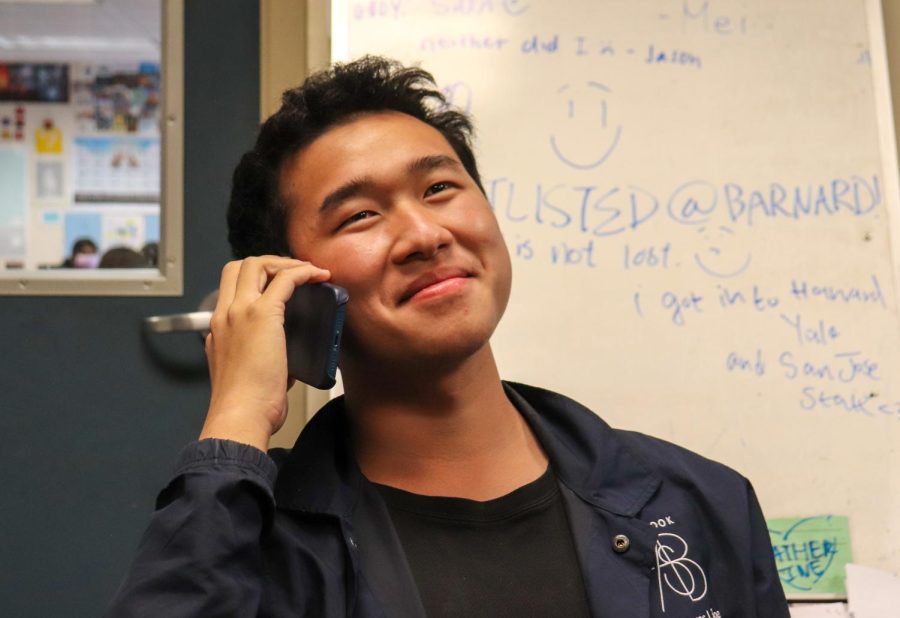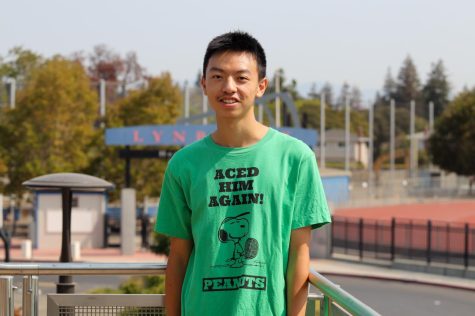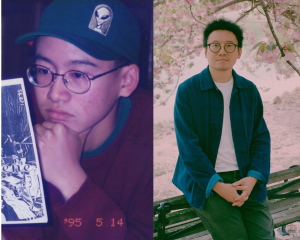AV Expo drives engineering and ethics
Senior Joe Lin, who hosted the AV Expo, sits in a self-driving car.
May 3, 2022
The National Autonomous Vehicle Expo on April 16 and 17 increased awareness of the future of autonomous vehicles. Organized by senior Joe Lin and his team of volunteers, many of whom are Lynbrook students, the AV Expo partnered with Partners for Autonomous Vehicle Education to cover the engineering and algorithmic aspects as well as ethics and policy making for AVs. The AV Expo also hosted a hackathon for the 250 participants to gain first-hand experience in the AV industry.
Welcoming both experienced and novice programmers, the AVExpo held seminars covering topics across all skill levels. Novice researchers could explore machine learning in “A gentle introduction to artificial intelligence” by UC San Diego Machine Learning Instructor Malachi Mabie, while advanced programmers could delve deeper into “Advancing autonomous perception with 4D imaging radar” by Mahmoud Saadat, co-founder of Zadar Labs.
Beyond the engineering aspect of AVs, there were also sessions that focused on public policy and real-world deployment of AVs. In particular, “Autonomous vehicles program overview” by Miguel Acosta from the California DMV revealed the rigorous testing and development of AVs before fully deploying them on the busy streets.
“If one of these automated vehicles gets into a car accident, who’s responsible?” Lin said. “Is it the person who purchased the AV? Or is it the company’s fault since they produced the algorithm?”
“The path to autonomy” by AV Product Developer at Stantec GenerationAV, Katie Clothier, taught the five levels of the development of AVs. Level 1 introduces basic autonomous controls, such as cruise control, and level 5 evolves into full automation. These sessions covering the ethics and policy making of AVs provide additional benefits and insight into the intricacies of the AV industry.
“We use AV technology to empower communities that don’t have easy access to transportation,” Lin said.
In addition to the myriad of seminars, the AV Expo also hosted a hackathon to give participants hands-on experience in the field of AVs. Contestants were tasked with pitching a possible improvement to current AV technology. For example, freshmen Rishabh Sahoo, Hao Gu and Anish Bhethanabotla developed AI Eye, a machine learning algorithm to detect whether drivers were drowsy or awake based on images of their eyes.
“From the seminars and hackathon, I learned a lot more about how autonomous vehicles work because it’s a relatively new topic,” Sahoo said.
The AVExpo increased awareness of not only the engineering and algorithmic but also the ethical and political aspects of AVs, inspiring the next generation to explore the complex and multi-faceted AV industry through seminars and hands-on experiences.




























































